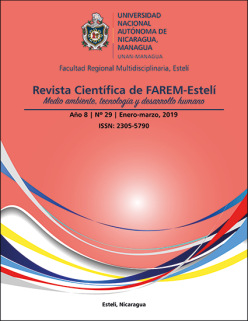Epistemological beliefs to construct knowledge and its relevance for the study of academic performance
DOI:
https://doi.org/10.5377/farem.v0i29.7624Keywords:
philosophical beliefs, academic performance, evaluation of learningAbstract
This documentary review article, traces the history describing relevant aspects of philosophical beliefs of science, it makes a connection with the real life focusing on the influence of each belief on aspects related to academic performance. It is concluded that the positivist belief is based on quantitative methods to assess student learning, the hermeneutic method is ruled by the constructivist paradigm for the understanding of the contents addressed, the critical method promotes new knowledge in the student in a more open form through the paradigm of complexity, It promotes the application of cooperativism in learning by promoting the description and action on the singularities studied. All the methods made significant contributions to the study of the academic performance, they cannot be embraced separately.
Downloads
3090
HTML (Español (España)) 1323
Published
How to Cite
Issue
Section
License
© Revista Científica de FAREM-Estelí

